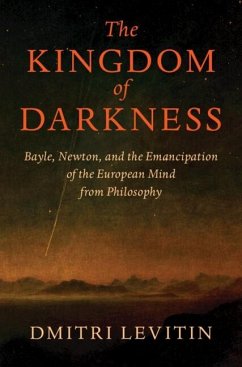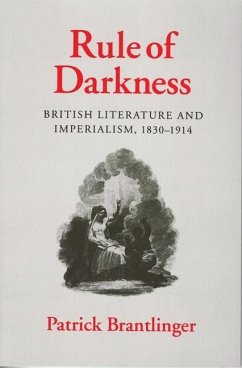In 1500, speculative philosophy lay at the heart of European intellectual life; by 1700, its role was drastically diminished. The Kingdom of Darkness tells the story of this momentous transformation. Dmitri Levitin explores the structural factors behind this change: the emancipation of natural philosophy from metaphysics; theologians' growing preference for philology over philosophy; and a new conception of the limits of the human mind derived from historical and oriental scholarship, not least concerning China and Japan. In turn, he shows that the ideas of two of Europe's most famous thinkers, Pierre Bayle and Isaac Newton, were both the products of this transformation and catalysts for its success. Drawing on hundreds of sources in many languages, Levitin traces in unprecedented detail Bayle and Newton's conceptions of what Thomas Hobbes called The Kingdom of Darkness: a genealogical vision of how philosophy had corrupted the human mind. Both men sought to remedy this corruption, and their ideas helped lay the foundation for the system of knowledge that emerged in the eighteenth century.
Dieser Download kann aus rechtlichen Gründen nur mit Rechnungsadresse in A, B, BG, CY, CZ, D, DK, EW, E, FIN, F, GR, HR, H, IRL, I, LT, L, LR, M, NL, PL, P, R, S, SLO, SK ausgeliefert werden.
Hinweis: Dieser Artikel kann nur an eine deutsche Lieferadresse ausgeliefert werden.









